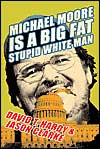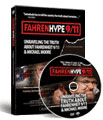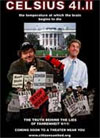Belgravia Dispatch: "charlatan, publicity-hound and talent-challenged fraud"
The New York Review of Books finally got around to publishing a review of Michael Moore's Fahrenheit 9/11 ("Is It All Just a Dream?" Volume 51, Number 13 · August 12, 2004).
Belgravia Dispatch has an excellent review of the review:
So they will leave bemused and entertained--but not truly interested, persuaded on the merits, advanced in knowledge, fulfilled spiritually, improved in any real way (as true art is meant to do). That such efforts are even considered art and worthy of significant prizes speaks to the cultural desert we inhabit today. It's a sad state of affairs--but at least the dangers of a Leni Riefenstahl are not presented by this faux-artist who is really an imbecilic Howard Stern type shock-jock with a camera and a bone to pick from the old Flint days.
So yes, I'm clearly deeply underwhelmed, and doubtless others will increasingly be so going forward. The emperor has no clothes (much like the Cannes jury's selection process).
And yet, like it or not, Fahrehheit 9/11 passes for compelling fare among many. Surely though, better times must beckon? Or has cultural production truly become so desparately bleak? It hasn't, I know (many talents toil in near anonymity), but critics need to yell more loudly so the boorish lout that is Michael Moore is unmasked for the charlatan, publicity-hound and talent-challenged fraud that he is.




